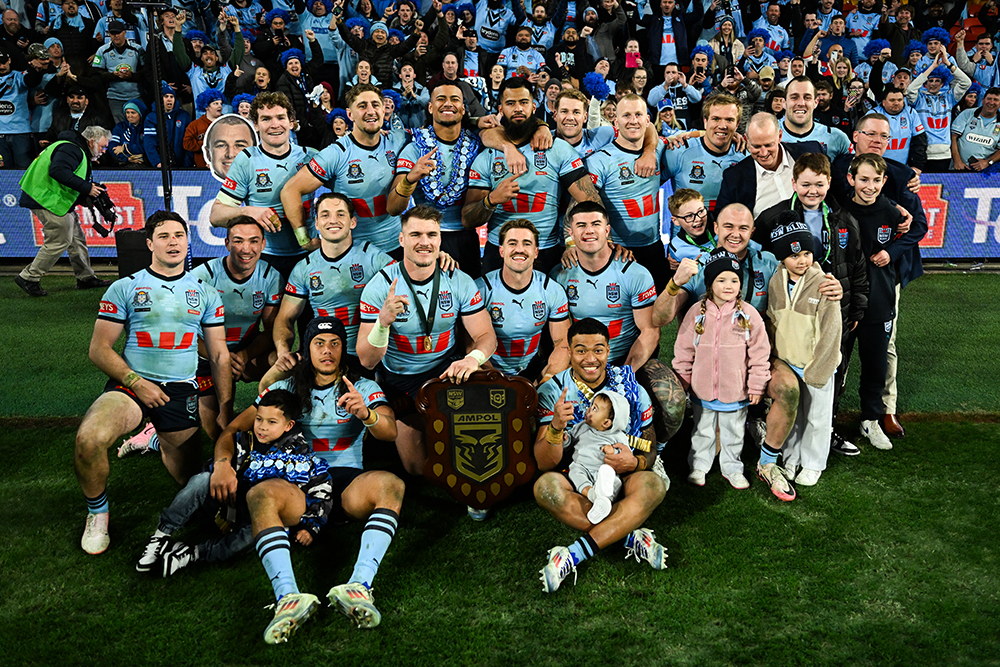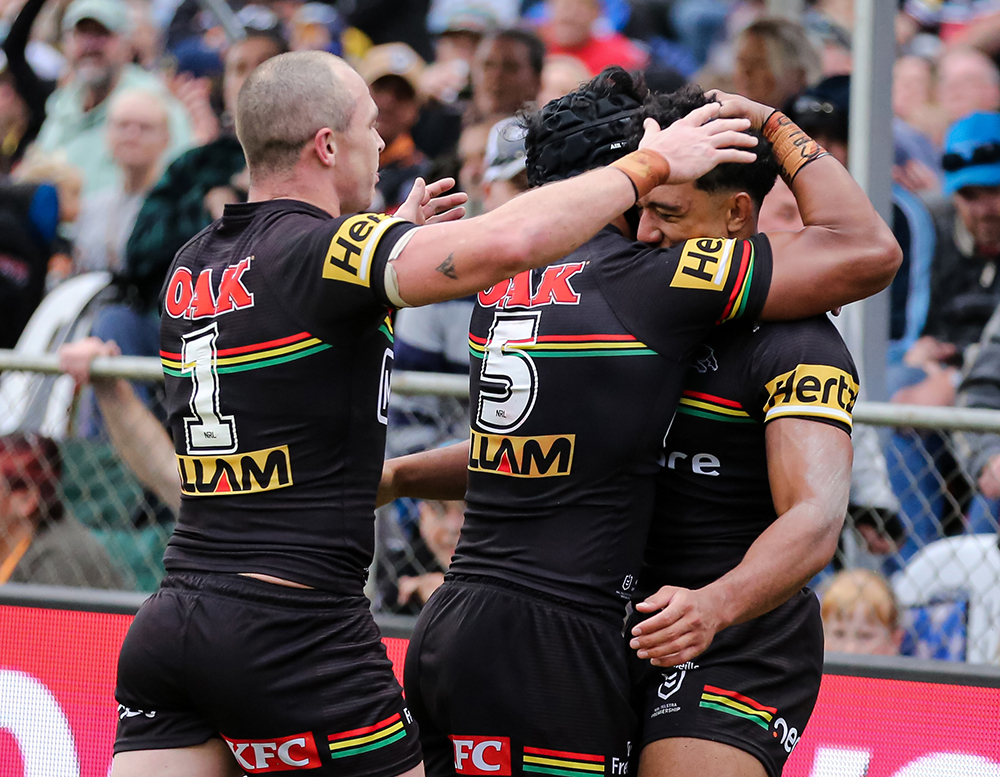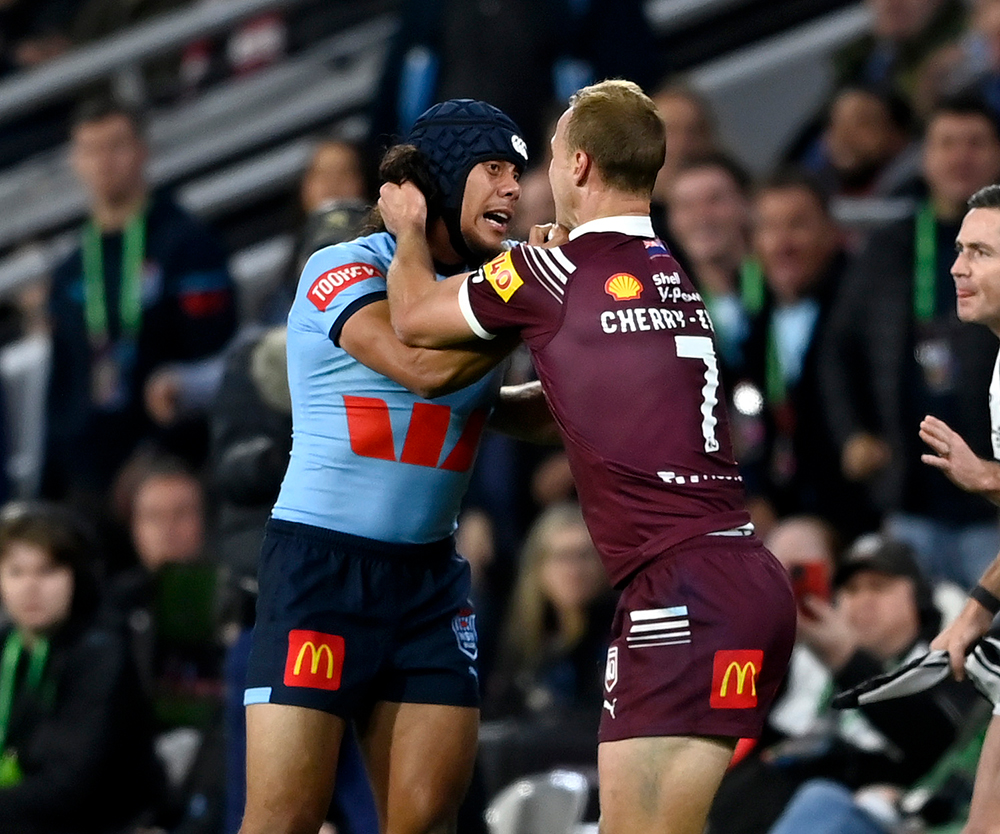 The race to the rugby league Finals begins this weekend, with the State of Origin series now officially in the rear view mirror and the focus returning to club football.
The race to the rugby league Finals begins this weekend, with the State of Origin series now officially in the rear view mirror and the focus returning to club football.
And as sure as night follows day, the inevitable argument about State of Origin scheduling has reared its head again.
“It needs to go to the end of the season,” many fans declare, forgetting we tried this in the COVID-impacted 2020 season and it was a dismal failure.
For a whole host of other reasons, Origin after the regular NRL season simply won’t work.
There is all sorts of talk about what may happen with the Origin schedule, with the possibility of stand-alone weekends and even Monday night fixtures to be considered, to allow players more time to recover and back up for their clubs the following weekend.
I understand the frustration that can exist during the Origin period. Fans want to see their favourite and best players turning out for their teams, but Origin takes that way.

And I will say that the NRL, in my view, had it close to perfect when there was a stand-alone representative weekend inclusive of a Sunday Origin a few years back, meaning clubs were only forced to be without their key players for one game (they had the bye on the other impacted weekend).
It was almost a backward step to what everyone wants the game to achieve by returning to three Wednesday night fixtures.
But regardless, I’m not quite buying the argument that it ruins or dilutes the NRL competition.
In fact, I think it’s one of the game’s great myths.
Let’s look at the facts.
The Origin period commences back in early June, impacting Round 13 of the competition and essentially concluded last weekend at Round 20.
Going into Round 13, the top eight was: Cronulla, Penrith, Melbourne, Dolphins, Roosters, Brisbane, Newcastle, Canberra.
And coming out of the Origin period, at the end of Round 20, the top eight looks like this: Melbourne, Penrith, Cronulla, Roosters, Manly, Canterbury, Dolphins, Cowboys.

So let’s dissect that a little.
Three of the top four remains the same, despite their Origin representation. In fact, Penrith – with five players on New South Wales duty and resting players post-Origin as well – have actually gone up a spot on the ladder during this period.
Manly, who were without inspirational skippers Daly Cherry-Evans and Jake Trbojevic during the Origin season, have landed in the top eight, despite not being there when this period started.
Brisbane is the big drop, but you could argue their slide was on regardless and the loss of Adam Reynolds is actually what impacted them the most.
The ladder simply doesn’t backup the argument that clubs have been seriously disadvantaged during this period, at least not to the extent of their overall prospects being damaged.
Then you need to look at the reality of the Premiership winners from the last decade or so.
Penrith have won three straight titles despite the enormous impact of the Origin period, and the huge drain it has had on the main squad. Despite the challenge, they’ve also won three of the last four Minor Premierships.
Melbourne constantly lost their big gun players during Queensland’s incredible Origin run, yet won four Minor Premierships in nine seasons between 2011 and 2019, and made four Grand Finals in the same period.
Again, the evidence just isn’t there that Origin dilutes the competition to such an extent that we don’t end up with the right winner at the end of it all.
Rugby league is unique in many ways. And it is notoriously uneven, from the way the draw is structured to third party salary cap rules and yes, the Origin period.
But that’s all part of why we love it.
The NRL should not tinker with its most valuable asset, State of Origin, purely to protect a club competition that the evidence suggests is not actually being impacted all that dramatically anyway.
Sure, make appropriate changes here and there and sharpen the schedule if possible, but let’s not go overboard.
As always, this whole argument will quickly fade as the excitement of the NRL Finals arrive.
And another thing…
We should not be afraid to say that the melee that became such a talking point out of Origin III was great for the game.
It’s almost taboo to want things to boil over on the grandest stage. We’re told constantly that it’s not a good look.
And yet, the moment most people stood in their lounge room last Wednesday night or shouted out at the pub was when things exploded.
It became the game’s biggest talking point.
Rugby league over-corrected all those years ago when it banned punching and tried to take the agro out of the game.

Sure, we needed to grow up a little and ensure that the product we put out was not dominated by blood and black eyes.
But now it doesn’t know how to get back to a middle ground so it just goes along with the line that the biff is bad.
Truth is, the fans love it.
And the casual observers love it too.
And secretly, so does the NRL.

Troy Dodds
Troy Dodds is the Weekender's Managing Editor and Breaking News Reporter. He has more than 20 years experience as a journalist, working with some of Australia's leading media organisations. In 2023, he was named Editor of the Year at the Mumbrella Publish Awards.
